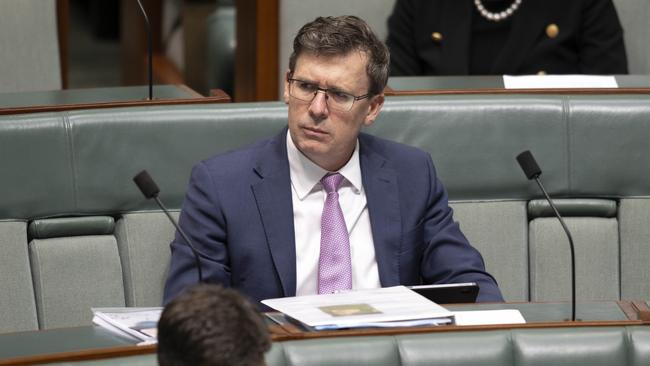Become specialist to thrive, universities told
Education Minister Alan Tudge wants less sameness and more specialisation and differentiation among Australia’s universities.

Education Minister Alan Tudge has signalled his desire to change the three-decade-old model of comprehensive universities, saying it was time to start a conversation about more “differentiation and specialisation”.
Mr Tudge told a Universities Australia conference on Thursday that the current arrangements – under which all 39 public universities teach similar courses and engage in research in nearly all academic areas – “may not be an optimal model for the quality of teaching or research in this country”.
And under intense financial pressure from the Covid-19 pandemic, and with looser restrictions for colleges to meet research goals, some universities are increasingly wondering whether they should be more specialist.
The country’s newest vice-chancellor, the University of Wollongong’s Patricia Davidson, said her previous institution had shown it was possible to talk about “selective excellence”.
Professor Davidson arrived in Australia six weeks ago from her former job as dean of nursing at Johns Hopkins – a university that specialises in only medicine, nursing and public health.
“You can’t be good at everything,” Professor Davidson said.
Those remarks coincide with new higher education regulations, starting on July 1, that will establish a new category of “university colleges” that do not have to meet the research standards that apply to universities.
University colleges can choose to be teaching-focused, thus introducing more diversity into the higher education system.
Universities have faced a funding squeeze from loss of international students, and are under pressure to stop teaching subjects that have few students and withdraw from poorly performing areas of research.
If Mr Tudge decides to encourage universities to differentiate and specialise, it would up-end the comprehensive university model established by then education minister John Dawkins in the late 1980s that created large institutions offering courses in virtually all subjects.
Universities Australia chair John Dewar, the vice-chancellor of La Trobe University, said the sector’s peak body looked forward to discussing with Mr Tudge “exactly what he has in mind” when he spoke about differentiation and specialisation.
“Australia’s university sector is varied according to the communities they serve, their student bodies and industry relationships,” Professor Dewar said.
Mr Tudge’s comments have divided vice-chancellors, with some warning that specialist universities are impractical because most students in Australia choose to study at an institution near their home and want it to offer a full range of courses.
The demand-driven funding policy introduced by Labor a decade ago encouraged universities to expand teaching into more areas because each student enrolled attracted more government funding. Some universities fear that withdrawing into specialised areas will reduce student numbers and cut funding unless the government backs a change.
“We look forward to understanding the minister’s thinking and the policy settings and investment that will lead to differentiation,” Queensland University of Technology vice-chancellor Margaret Sheil said.
But economist Richard Holden, the incoming president of the Academy of the Social Sciences, said universities would benefit if they followed the principle of comparative advantage and focused on areas of excellence.
“Princeton doesn’t have a law school or a medical school and that doesn’t make it a bad university,” he said. “It’s one of the great universities of the world.”




To join the conversation, please log in. Don't have an account? Register
Join the conversation, you are commenting as Logout